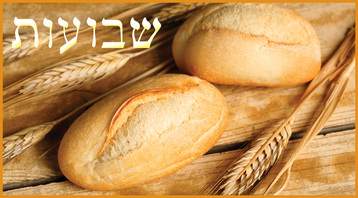A Strange Kingdom

“When we eliminate the Jewishness from these parables, we are left with questions that lack answers.”
Books on the Kingdom of Heaven abound, so why do we need another? Because studying Yeshua’s parables without their proper Jewish context will leave us with distorted and inaccurate interpretations of what He intended for us to understand and live out. When we eliminate the Jewishness from these parables, we are left with questions that lack answers.
That being the case, we are thrilled to announce that Sam’s newest book, The Mysterious Parables of the Kingdom of Heaven, is available at wordofmessiah.org! Whether Jewish or Gentile, understanding Yeshua’s parables in Matthew 13 from a Jewish perspective will help you make sense of the Kingdom of Heaven here on earth while we wait for our King’s return!
Excerpt from The Mysterious Parables of the Kingdom of Heaven
A parable is an earthly story with a heavenly truth, and it only has meaning when shared alongside the idea it is meant to illustrate. Yeshua is the key to understanding the parables, for He is the substance of all Scripture (John 5:39). Without an explanation, a parable makes no more sense than looking at a cloud or a Rorschach test and asking for your interpretation of what you see.
“Why is His Kingdom of Heaven so strange?“
As we understand Matthew’s intention to reveal Yeshua as the true King of the Jews, the reasonable question arises: Why is His Kingdom of Heaven so strange? This chapter in Matthew addresses this question. Yeshua is Israel’s true king, but the present form of His Kingdom is not what most of Israel would have expected. Therefore, the Kingdom is in a mystery form.
Because of Yeshua’s rejection, this mystery form of the Kingdom leads into the Millennial Kingdom of Messiah’s reign on earth (Matt. 13:43). The millennial Kingdom for national Israel is postponed until the Messianic King of Israel is accepted by national Israel. These parables give believers the needed insight to follow our rejected Messianic King during this mystery Kingdom period.
“These parables contain divine truth for the lives of all believers.”
Yeshua says to His disciples that to them alone “it has been granted to know the mysteries of the kingdom of heaven” (Matt. 13:11). These parables were only meant to be understood by believers, but not by the unbelievers. Why? Yeshua is the key. These parables contain divine truth for the lives of all believers. Yeshua here utters “things hidden since the creation of the world” (13:35), but these Kingdom truths are only revealed by personal faith in the presently rejected King of Israel, Yeshua the Messiah.
The Full Revelation
“Those of the seed of Abraham rejoice in Messiah as well!”
What the faithful of old sought to grasp and understand, the disciples then and now may take for granted. That is why Yeshua states, “For truly I say to you that many prophets and righteous men desired to see what you see, and did not see it, and to hear what you hear, and did not hear it” (Matt. 13:17). This blessedness on their eyes and ears is Yeshua’s provision of His fulfilled blessing. The “prophets and righteous men” would have included Abraham, the father of faith, who was glad to see Messiah’s day (John 8:56).
Those of the seed of Abraham rejoice in Messiah as well! It is the same with Isaiah, who saw both Yeshua’s glory and suffering, and the prophet John, who desired only to untie His sandal straps though he thought himself unfit to do so. Also, Shimon (Simeon), a righteous servant, who blessed the infant Yeshua in the Temple, and Nicodemus, who sought Yeshua at night, rejoiced.
“They had bits and pieces, but we have the total package.”
From Abraham to John the Immerser, Yeshua’s coming was finally the fulfilled hope of the prophets and those made righteous by faith, like Simeon and Nicodemus. This is in accord with the writer of Hebrews as well: “God, after He spoke long ago to the fathers in the prophets in many portions and in many ways, in these last days has spoken to us in His Son” (Heb. 1:1-2).
They had bits and pieces, but we have the total package. They had a word here and word there—but when we put them all together, they spell Yeshua! He is the full message and revelation of God, for He is God in the flesh. Yeshua is the true fulfillment of all God had promised and revealed in the Tanakh.
“The same faith, in the same object of faith—Messiah.”
Before Yeshua, they had faith that anticipated what God would provide in Messiah. Still, now for those of us who live after Yeshua’s death, resurrection, and ascension, with the same faith as Abraham, we appropriate by faith what God has fully provided in Yeshua. The same faith, in the same object of faith—Messiah. Thus, “God had provided something better for us, so that apart from us they would not be made perfect” (Heb. 11:40).
What Will Your Response Be?
“What areas in your life could you entrust to Him a bit more?”
Have you accepted or rejected the King? Your response is evidenced in whether you obey Him in all the various areas of your life. What issues in your life have you fully committed to Him to follow His Word? What areas in your life could you entrust to Him a bit more? Your obedient faith determines the difference between futility and victory.
“Faith clarifies, unbelief mystifies; but do you get it?”
In these parables of the Mystery of the Kingdom, we will, by grace through faith, see how to successfully live as we fully follow our presently-rejected-yet-victorious-King through this present evil age. Trust the Messianic King to triumph, even in this mystery of the Kingdom of Heaven! Faith clarifies, unbelief mystifies; but do you get it?




Add Comment